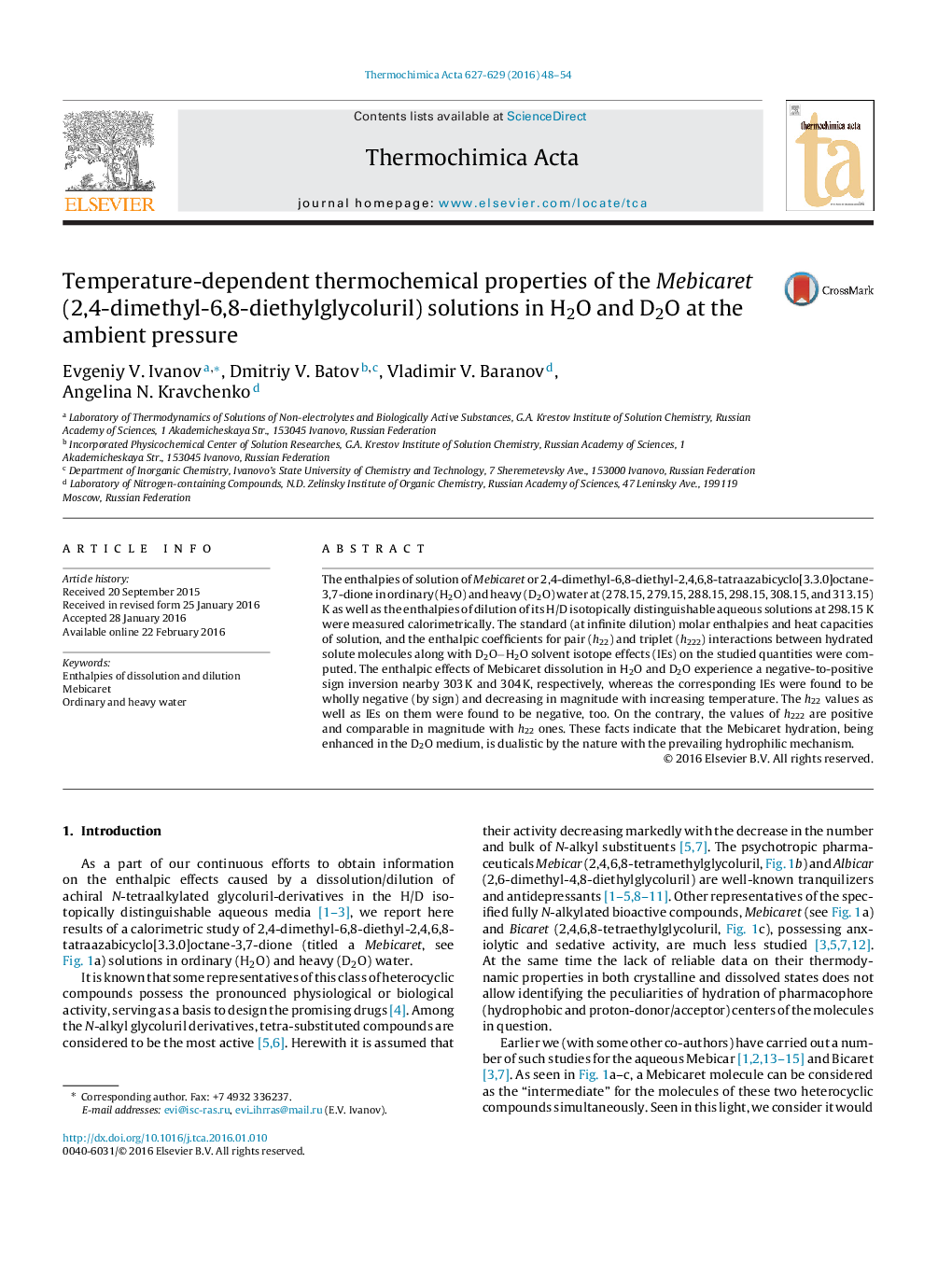| Article ID | Journal | Published Year | Pages | File Type |
|---|---|---|---|---|
| 672797 | Thermochimica Acta | 2016 | 7 Pages |
•Enthalpies of solution of Mebicaret in H2O and D2O were measured calorimetrically.•Enthalpy-isotopic effect was found to be negative and decreasing with temperature.•Standard molar heat capacities of solution are positive and higher in heavy water.•Enthalpic coefficients for pair 2-2-interactions are more negative in heavy water.•The prevailingly hydrophilic hydration of Mebicaret is weakened with temperature.
The enthalpies of solution of Mebicaret or 2,4-dimethyl-6,8-diethyl-2,4,6,8-tatraazabicyclo[3.3.0]octane-3,7-dione in ordinary (H2O) and heavy (D2O) water at (278.15, 279.15, 288.15, 298.15, 308.15, and 313.15) K as well as the enthalpies of dilution of its H/D isotopically distinguishable aqueous solutions at 298.15 K were measured calorimetrically. The standard (at infinite dilution) molar enthalpies and heat capacities of solution, and the enthalpic coefficients for pair (h22) and triplet (h222) interactions between hydrated solute molecules along with D2O−H2O solvent isotope effects (IEs) on the studied quantities were computed. The enthalpic effects of Mebicaret dissolution in H2O and D2O experience a negative-to-positive sign inversion nearby 303 K and 304 K, respectively, whereas the corresponding IEs were found to be wholly negative (by sign) and decreasing in magnitude with increasing temperature. The h22 values as well as IEs on them were found to be negative, too. On the contrary, the values of h222 are positive and comparable in magnitude with h22 ones. These facts indicate that the Mebicaret hydration, being enhanced in the D2O medium, is dualistic by the nature with the prevailing hydrophilic mechanism.
Graphical abstractFigure optionsDownload full-size imageDownload as PowerPoint slide
